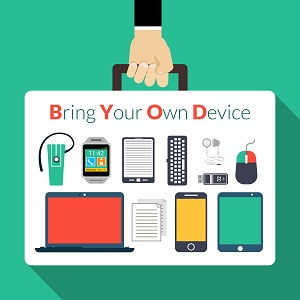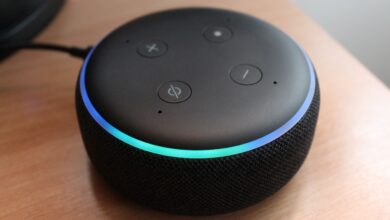
Is ample connectivity for guest devices as important as providing hot water?
Like it or not, this is the age of ‘bring your own device’ (BYOD).
Today’s guests arrive with their own online subscriptions and content, most have a clear idea of what they want and what they are accustomed to. They want to be able to view their regular news or social media updates and access content on one of their favourite apps and catch up channels such as Amazon Prime, Netflix, Hulu, Stan, YouTube, and more.
New content is always going online and more guests will want to access it on their own devices, not to mention business travellers with individual needs. Accommodation providers that enable their guests to connect to the web’s unlimited resources will offer a more varied and personal service.
Spiking demand for connectivity is placing an enormous burden on many hotel wifi networks and pressuring accommodation providers to invest in modern infrastructure.
 Guest reviews on TripAdvisor and the emergence of dedicated wifi-ranking websites have been tracking interest in hotel wifi.
Guest reviews on TripAdvisor and the emergence of dedicated wifi-ranking websites have been tracking interest in hotel wifi.
Guest room technology specialist Brendon Granger, the general manager of Technology4Hotels, agreed that we are living in the age of BYOD: “Guest’s arrive at a hotel with a myriad of communication and entertainment devices. We are now living in a society obsessed and reliant on its gadgets. These gadgets keep us both connected and entertained.
“Hotel guests bring devices with them and are watching their own movies and programs in the comfort of their room. Why do they want to use their own devices? Because they have spent time and money loading their ‘life’ onto their devices and they know how they work.”
He told us: “I believe that increasingly, in-room technology is less about what hotels provide (IPTV and pay-per-view movies) and more about accommodating what guests are bringing with them. The key for hotels is to provide them with the power, infrastructure and the bandwidth to achieve this.”
According to Mr Granger, the factors that accommodation providers should consider when catering for BYOD include power, internet connectivity, bandwidth and infrastructure/hardware.
A major challenge, he explained, is to provide adequate power for all the devices that guests bring with them but “on a positive note, the USB has become the default standard for charging mobile devices”. If guest rooms have well positioned and located power points, “you can replace them with a power point that has two built-in USB ports. This will allow your guests to charge any mobile device they bring with them as long as they have the appropriate charging cable”.
 If the power points are not well located and you are not about to refurbish, he recommends “something like a power rail that can be placed at the desk to provide both power points and USB charging for your guests”.
If the power points are not well located and you are not about to refurbish, he recommends “something like a power rail that can be placed at the desk to provide both power points and USB charging for your guests”.
Mr Granger also suggests that there should be at least two ‘free power’ outlets available for guests’ devices and if these power points do not have USB ports then at least four power points should be provided.
Referring to internet connectivity and bandwidth he recommends that: “Wifi access should be available throughout your property, your service should allow multiple connected devices on the one plan and your bandwidth needs to be sufficient to cater for the streaming that guests now expect when using applications such as Netflix.”
Hotels also need to ensure that their internet plan or service has the ability to connect multiple devices at once. Mr Granger suggests that: “Three devices are a minimum for a single guest as they may want to connect up both a smart phone and tablet or laptop. For families, you may need to have plans offering up to eight simultaneously connected devices.”
With this demand he also suggests that hotels need to monitor what guests are downloading and have some restrictions in place if possible. “They also need to review internet connection to their property to assess if it is adequate for the number of simultaneous guests using their internet service,” he adds.
Although guests bring their own devices with their own content, according to Mr Granger they would still prefer to watch the content on the larger accommodation in-room TV – exactly what they would do at home. He says: “We know this because hotels tell us that guests keep fiddling with their TVs and even leave cables connected to them.
 “To allow guests to connect to the TV without damaging it or impacting the next guest to occupy the room, you need to make sure the TV ports are accessible to the guest (on the front or side, not the back). You also need to consider things like the length of the antenna cable, so that when the guest swivels the TV it will not get ripped out the socket or damage the TV.”
“To allow guests to connect to the TV without damaging it or impacting the next guest to occupy the room, you need to make sure the TV ports are accessible to the guest (on the front or side, not the back). You also need to consider things like the length of the antenna cable, so that when the guest swivels the TV it will not get ripped out the socket or damage the TV.”
A connectivity panel, he explains, would allow guests to plug their device without the need of tampering with the TV. “In a nutshell, the benefit of choosing the right technology is guest satisfaction. Happy guests are repeat guests and will also comment positively on TripAdvisor, improving your scores and bringing in more guests.
“At this point, technology is being used as a differentiator by hotels but as the millennial traveller starts to make up a larger mix of hotel guests, technology will be paramount. International brands have already jumped onto the hotel technology bandwagon, with Starwood’s W brand embracing the millennial guest by incorporating technology and millennial-friendly design into their hotels early on.”
Poor battery life is the number one issue for smartphone users, according to Ben O’Leary from Kube Systems and he told us: “The hospitality industry is quick in recognising this. Bigger phones with larger screens and a growing addiction with being connected outstrip current lithium battery power. Meanwhile, additional hardware platforms (Apple 30-pin versus Apple Lightning cables) and shorter product lifecycles (iPhone 6, 6 Plus, 6S) push hotels to constantly chase the ever-evolving technology.
“Dead battery anxiety drives guests to seek power outlets for their devices, wherever they may find it: walls, pillars, behind the front desk. Some studies indicate that customers would stay at a premises for up to 30 minutes more had they been able to charge their device.”
 Accommodation providers should expect the demand from guests for power and connectivity to “only increase as more devices link to the world of the internet [of things] – such as watches, health devices and the like”.
Accommodation providers should expect the demand from guests for power and connectivity to “only increase as more devices link to the world of the internet [of things] – such as watches, health devices and the like”.
But Mr O’Leary warns: “It is important not to be tied down by one type of technology. At one point, hotels installed docking stations with Apple 30-pin connectors, only to see them become redundant quite quickly. Don’t try to pick a winner, there are many device standards and selecting a ubiquitous solution is key.”
Another factor is availability. He suggests: “Along with a guest’s wallet, the mobile device is one of the most important elements of a traveller’s flexibility. So keeping that device charged and available to use at all times should be a matter of priority for managers. Just as wifi is now expected everywhere, so too will charging power opportunities. It’s only a matter of time and adaptability.”
It is essential that managers choose wisely. According to Mr O’Leary, the considerations are: total cost of ownership, improved customer satisfaction, increased demand and lower operating costs.
He says: “As a traveller myself, I must have spent hundreds of dollars on new charging cables in multiple cities in multiple countries. I have also inadvertently ended up with a few chargers from a number of hotels as well. I want to avoid hunting for a power point behind the bed or in the lobby and I can personally guarantee improved satisfaction when my need is met.
“I am also certain the hotel does not want the costs associated with delivering device chargers to customer’s rooms or having to replace them. In this day-and-age, customers are more demanding than ever and more powerful thanks to the internet and social media. A great experience will be rewarded through loyalty and referral. But the opposite is also true, which can lead to lost opportunities and revenue.”
 There are several means available to solve connectivity dilemmas. Bluetooth speakers incorporated into bedside clock radios, mediahubs, connected to TVs and wireless solutions allowing for wireless connectivity to TVs for content sharing.
There are several means available to solve connectivity dilemmas. Bluetooth speakers incorporated into bedside clock radios, mediahubs, connected to TVs and wireless solutions allowing for wireless connectivity to TVs for content sharing.
With content not only on guests’ devices but in the cloud via streaming applications, such as Netflix and countless radio streaming portals, a robust internet connectivity solution is essential. Judging by the outpouring of complaints from guests on review sites when the internet access is poor, has the issue become more important than having warm water?
Robert Weatherdon is the managing director of Weatherdon Corporation, a preferred supplier to more than 600 hotels in Australia and New Zealand. He told us: “One of the most controversial topics amongst hotel guests, ranking right up there with wifi speed and connectivity, is clocks and docking stations. Devices are part of the electronic cache that sends the signal to guests that your property is up to trend and designed to meet today’s traveller’s expectations.
“Unlike buying a clock for the bedside table at home, guest-room clock radios come with myriad variations to consider. Therein the first challenge lies as docking stations are all made for the home market.
“For the hotel market, the key must be simplicity. The device has to be understood by the technophobe as much as the digital native. Your grandmother, your kid sister, they are all equal in the hotel’s eyes.”
Weatherdon’s team attends lots of trade fairs around the world, to keep abreast of the latest trends. “We spent much time and energy in researching and hunting for a bluetooth that pairs with everything. The exercise reminded us of Goldilocks: not enough ports, too many ports, too heavy, too light, looks great but too fragile, wrong colour, right weight,” says Mr Weatherdon.
“Remember, devices have to be simple and pair with everything. That might be an android phone or an iPhone, the Galaxy 8 has to fit. Again, it’s not like the one you have at home that you buy to match your devices, that’s why we went to bluetooth,” he adds.
According to Mr Weatherdon, even the bedside table is premium room-real-estate space, needing to hold a large array of necessities as well as the guests’ bits and pieces. “More likely it will be a space by the bedside the size of the palm of your hand”.
Therefore, he explains, the docking station has to be as small as possible. “The trend for everything in hotel rooms is becoming smaller”. Then there is the issue of the display light. “We ensure the dimmer options are tailored to guests. You can’t just have an on/off display button it has to be graduated. Too bright and it will drive the guest crazy during the night.”
It is all about perception and if you get it right: “It shows guests that you understand and cater to their needs.”
The docking station will also need more international chargers and USB ports than would be usual due to today’s guests travelling like a “global IT department” and that is just the technology “before we have even looked at design”.
He suggests: “A gold mesh front might look stylish at home but in hotels it will get rougher treatment and may not fit the decor. It’s an industrial design challenge. Clocks have to be bulletproof, functional, attractive and work easily for the guests’ needs and reflect the décor and brand.
“When ordering, commissioning or designing guest room products, economies of scale are important and limit choice. What is standard in one hotel, is a luxury item in the next. From the most family-friendly caravan park to the most luxurious of hotels, service these days is far more than a friendly smile at reception.”
Mr Weatherdon shares his three golden rules for guest-room appliances: “Always choose quality devices especially designed for heavy-duty wear and tear. Will an everyday product cost more in the long run because it is not robust enough for hotel use?
“Determine if the appliance is fit-for-purpose: Is it possible to dim the display on the clock radio? Can this one appliance also double as a charger for smartphones and tablets or a dock for an MP Player?
“No-one will ever read the instruction guide or Google a how-to. Would someone who has never used this particular appliance before be able to do so easily? Can they readily tell if it is on or off? Are the controls able to be understood in anyone’s language?”
Connectivity is indeed a great burden to the industry and that has to be addressed, there are several options available to solve your technical dilemmas and any good industry supplier can advise what is best for your individual requirements.
There is no getting away from the fact that guests see wifi and connectivity as a priority but it is perhaps not as important as hot water – just yet!

AccomNews is not affiliated with any government agency, body or political party. We are an independently owned, family-operated magazine.







